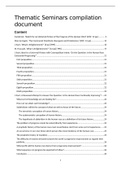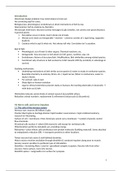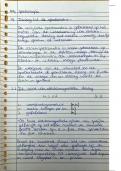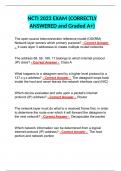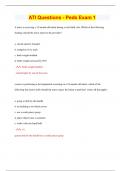Samenvatting
Samenvatting Thematic Seminar: The End Of History? Theories Of Modernity (5182KTC50)
- Instelling
- Universiteit Leiden (UL)
Samenvatting Thematic Seminar: The End Of History? Theories Of Modernity (5182KTC50) ALL Readings for the Entire Thematic Seminar: The End Of History? Theories Of Modernity Course
[Meer zien]
